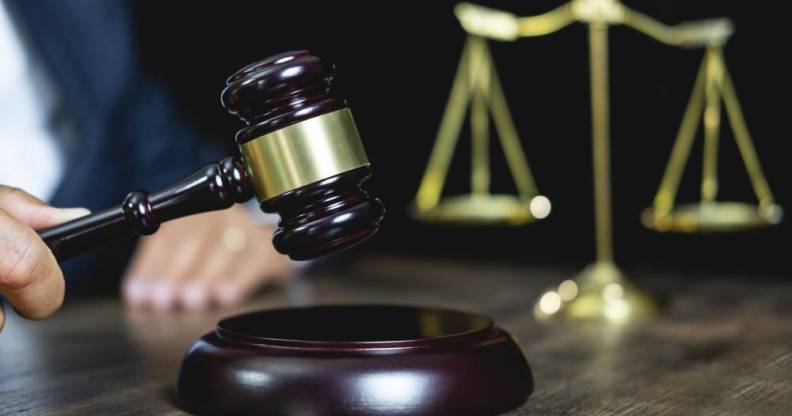Judges refuse to use non-binary defendant’s correct pronouns because ‘it could be confusing’

(Envato Elements)
A panel of federal judges refused to use a non-binary defendant’s correct pronouns claiming it would cause “confusion” if legal documents referred to a “single individual as ‘they'”.
The case involved the appeal of a non-binary person, Shawn Kelly Thomason, who was sentenced to 45 months in prison for stalking their ex-girlfriend in Minnesota, according to the Detroit Free Press. They pleaded guilty in March 2019 after prosecutors said they attacked GPS trackers to their ex-girlfriend’s car and recorded her daily travels.
Thomason has been trying to appeal the sentence. One of the points raised in their appeal was how prosecutors continuously misgendered them during hearings, despite them having filed a request that “to the extent possible, gender-neutral pronouns be used when referring” to them.
In a letter to the probation office, Thomason said they “prefer use of the pronouns: ‘they’, ‘them’ and ‘their'”.
Later, Thomason said they objected to “all 134 instances of purposeful and deliberate misgendering of me” in a November 2019 hearing.
However, Eighth Circuit judge Steven M Coloton and two other judges unanimously dismissed Thomason’s appeal, citing several reasons why misgendering is not a legal reason for an appeal. He also said the panel of judges would not refer to Thomason with “they” pronouns because they believe the “clarity” of their legal writing would suffer.
“Clarity suffers and confusion may follow when legal writing refers to a single individual as ‘they’, especially when the materials advert to other actors who are naturally described as ‘they’ or ‘them’ in the traditional plural,” Colton wrote in the judgement.
The response also cited the use of he/him pronouns in Thomason’s sentencing memorandum, and how the prosecution had called their use of they/them a “new development” that they felt conflicted with “eight months of habit using male pronouns”.
The three-judge panel ruled it will continue to misgender Thomason. Colton wrote: “Consistent with the proceedings in the district court, and for the sake of clarity, we use masculine pronouns when referring to Thomason in this opinion.”
The argument that it’s “too difficult” to write coherently while using the singular “they” has long been dismissed by leading associations.
The American Psychological Association has approved the use of “they/them” pronouns in scholarly writing. Similarly, the MLA advises writers to always follow the personal pronouns of individuals they write about, including using the singular they for trans or non-binary people.
Ethan Rice, senior attorney on the fair courts project for Lambda Legal, told PinkNews that trans and non-binary people deserve equal treatment and respect in the courtroom, and this includes “respecting who they are by using their correct pronouns”.
He explained it’s “not a difficult task” for courts to use an individual’s correct pronouns. “In fact, it is a judge’s responsibility to do so,” Rice said.
“Judges must always perform their duties without bias or prejudice and are required to treat all litigants with respect and courtesy,” Rice explained. “The majority of courts have consistently used the pronouns requested by a litigant, including non-binary pronouns.”
He also shared that New York recently addressed the use of singular “they” in an ethics opinion. The judicial ethics opinion said the court must use correct pronouns – including “they/them” – or it would “undermine public confidence in the judiciary’s impartiality” and could make trans, non-binary or gender fluid individuals “feel unwelcome”.
“If other courts are able to do so without confusion, certainly the eighth circuit could have followed their example and avoided using disrespectful and biased language. And they should have,” Rice said.
The ACLU Law Review has argued the intentional misgendering of trans people in legal proceedings is misconduct and a form of harassment. The ACLU explained that misgendering “might be addressed as attorney misconduct” under a rule which “requires fair treatment of parties and counsel” and “prohibits conduct prejudicial to the administration of justice as well as harassment or discrimination”.
This article has been amended to include comments provided to PinkNews by Ethan Rice from Lambda Legal.

